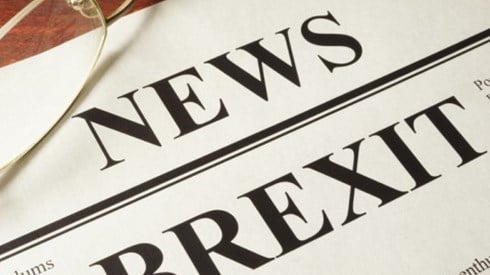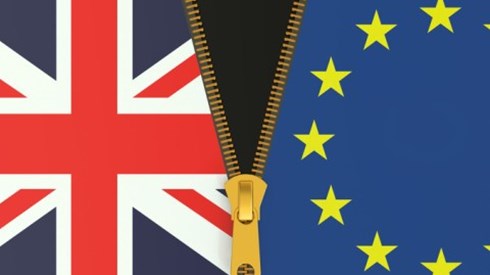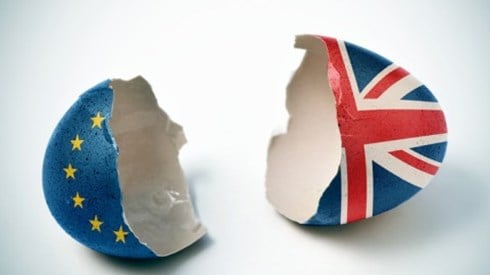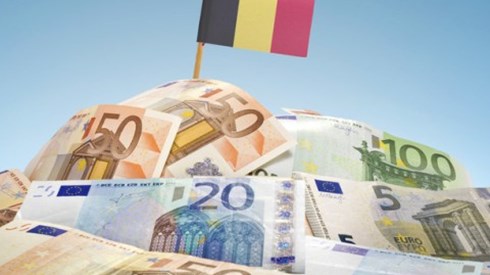Insurance Sector Responses Follow UK Government Brexit White Paper

July 16, 2018

The UK government's recently released 98-page Brexit white paper, titled The Future Relationship between the United Kingdom and the European Union, further defines the United Kingdom's position surrounding its exit from the European Union. (Editor's note: The United Kingdom will leave the European Union by March 29, 2019, with a 21-month transition period.) Regarding financial services, the white paper confirms that the United Kingdom will leave the EU Single Market, will no longer operate under the European Union's "passporting" regime, and will not adopt a third country equivalence regime.
Setting the tone, in the foreword of the white paper, Prime Minister Theresa May states the following.
In the referendum on 23 June 2016—the largest ever democratic exercise in the United Kingdom—the British people voted to leave the European Union.
And that is what we will do—leaving the Single Market and the Customs Union, ending free movement and the jurisdiction of the European Court of Justice in this country, leaving the Common Agricultural Policy and the Common Fisheries Policy, and ending the days of sending vast sums of money to the EU every year. We will take back control of our money, laws, and borders....
Specifically, the white paper says that "[a]s the UK leaves the EU and the Single Market, it recognises the need for a new and fair balance of rights and responsibilities. The UK can no longer operate under the EU's 'passporting' regime, as this is intrinsic to the Single Market of which it will no longer be a member."
An August 14, 2017, BBC article explains that countries in the European Single Market cooperate by allowing free movement of goods, capital, services, and people.1 The Single Market eliminates tariffs, quotas, or taxes on trade and, according to the European Commission's website, generally removes regulations in order to allow unrestricted movement of goods and services.2
As described in two Brexit Quick Briefs (#3 and #4) issued by the British Bankers' Association, as part of the Single Market, the EU "passporting" system provides an avenue for banks and financial services organizations to trade freely with minimal cross-border regulatory hurdles. Further, third country equivalence is available to non-EU banks to offer limited services in the European Union if their standards of regulation and supervision are "equivalent" to EU criteria.3,4
The Brexit white paper says, "The EU has third country equivalence regimes which provide limited access for some of its third country partners to some areas of EU financial services markets. These regimes are not sufficient to deal with a third country whose financial markets are as deeply interconnected with the EU's as those of the UK are."
In discussing the impact of the proposal on trade and economics, Professor Jonathan Portes, senior fellow at the UK in a Changing Europe, stated the following, which was published on the organization's website.
These proposals would effectively keep us in the single market for goods and food products—except we'd have far less influence over the rules. On services, including financial services, the UK continues to ask for extensive market access on the basis of "equivalence," but at the same time seeks regulatory autonomy.
While these proposals have been presented as a softening of the government's approach to Brexit, even on the most optimistic interpretation they would still, in practice, mean new and substantial non-tariff barriers to trade, particularly in services. The government's own "Brexit economic impact assessments" suggest that this would have a large and negative impact on the UK economy, perhaps in the region of 3 percent of GDP over 15 years.
UK Finance Chief Executive Stephen Jones said the following in a statement appearing on the UK Finance website.
The UK is currently the second largest exporter of services worldwide. Tens of thousands of customers and billions of euros of banking and capital markets services are reliant on the UK remaining Europe's most interconnected financial centre. As the Government recognises in today's White Paper, it's entirely possible to use the tools and trust we have established during 40 years of membership of the EU to construct a new arrangement that preserves some of the benefits of close alignment without sacrificing political and regulatory autonomy.
However, as today's paper makes clear, simply relying on existing equivalence arrangements will not provide financial institutions with effective market access that enables them to serve their customers. The Government is right to want to propose a new economic and regulatory arrangement which seeks to strengthen and expand the current third country regime.
Given the limited time available it is vital that both the UK and EU27 negotiators come to the table and focus on ensuring a legally enforceable agreement, delivering enhanced and expanded third country arrangements that enables meaningful cross-border market access in financial services. In this way firms on both sides of the Channel can continue to serve business and clients across the UK and Europe without risking financial stability.
A Range of Responses from the Insurance Sector
According to the BBC, while non-services groups reacted more positively, many service sector groups say the plan is a setback.5 The following insurance sector statements demonstrate disappointment as well as some receptivity in response to the Brexit white paper.
Lloyd's
In a July 12 BBC interview video, Lloyd's of London Chief Executive Inga Beale said, "Professional and financial services are really not catered for at all, and it is very disappointing. It is not providing the certainty we need."
Ms. Beale continued, "If anything, it's going to accelerate our plans. Lloyd's, for instance, [is] moving to Brussels. We will be full steam ahead, and many other banks, insurers, and other professional service firms will be moving at pace now."6
PwC
Andrew Gray, head of Brexit for PwC, stated the following.
The Government has changed its preferred course on financial services. The so called mutual recognition model has been dropped, instead access would be built on improving the EU's current equivalence arrangements.
There are a number of issues with the EU's current approach to equivalence—most notably that it does not cover key activities such as insurance and deposit taking. Equivalence decisions can also be reversed at short notice and the process can be unpredictable at times. The Government is proposing that these issues are addressed by the EU by covering all key sectors and by making the equivalence process more predictable for businesses.
Despite this being a credible proposal, businesses should know that there is still a risk of no deal and therefore should continue to plan for this scenario.
London and International Insurance Brokers Association
In a July 12 LinkedIn post, Christopher Croft, chief executive of the London and International Insurance Brokers Association, said the following.
We are disappointed that the Government has not reflected the strong feedback from our industry that both EU clients and UK business would be best served by a mutual market access regime. We will work with our members to understand the full implications of what is being proposed.
As always, central to that effort will be a focus on how we ensure that the client is the one to suffer least from the disruption Brexit will cause. The issue of contract continuity must be resolved. There is some doubt as to whether UK insurers will remain licenced to pay claims in a few EU countries without an agreement in place. We therefore support the call by the FCA Chief Executive Andrew Bailey for this to be resolved at official level. The sooner the better. Transition arrangements will only postpone the issue.7
Mr. Croft also explained in a July 12 column for Insurance Business, UK, that "[s]ome carriers are working to alleviate this [contract continuity] problem by transfers of liabilities to their new EU entities. This, however, is not a perfect solution as liability transfers are lengthy, involving potentially confusing communications for the client. It may also not be possible to precisely transfer the liability of a global programme."8
Association of British Insurers (ABI)
Huw Evans, director general of the Association of British Insurers (ABI), said in a statement published on the ABI website: "Publication of the White Paper is an important step in the Brexit negotiations. Whatever the final outcome, the insurance industry is too important to be a rule taker.
"Having to comply with financial regulations we have no say over would be the worst possible scenario for our world leading insurance sector, so we will look to the Government to negotiate a better outcome than this."
International Underwriting Association (IUA)
Dave Matcham, chief executive of the International Underwriting Association (IUA), said the following in a comment published July 12, 2018, on the All About Shipping website.
The IUA welcomes publication of the Government's Brexit White Paper and is pleased that it recognises the importance of making cross border trade in financial services as efficient as possible.
The proposed economic and regulatory partnership promises significant levels of dialogue and cooperation between EU and UK insurance supervisors. This will be important in establishing a secure and stable trading environment upon which companies and their clients can confidently rely.
We hope that this proposal will allow for the continued cross-border transaction of both reinsurance and large scale wholesale risks for marine and aviation business and that it forms the basis of an enduring trading relationship.
- Jonty Bloom, "Free Trade Area, Single Market, Customs Union—What's the Difference?" BBC News, August 14, 2017.
- "The European Single Market," European Commission website.
- "What is 'Passporting' and Why Does It Matter?" Brexit Quick Brief #3, British Bankers' Association website.
- "What Is 'Equivalence' and How Does It Work?" Brexit Quick Brief #4, British Bankers' Association website.
- Rebecca Marston, "Brexit Services Plan Will Speed Up Relocation, Says Lloyd's Boss," BBC News, July 12, 2018.
- Rebecca Marston, "Brexit Services Plan Will Speed Up Relocation, Says Lloyd's Boss," BBC News, July 12, 2018.
- Christopher Croft, LinkedIn, July 12, 2018.
- Christopher Croft, "Contract Continuity Is a Two-Way Street," Insurance Business UK, July 12, 2018.
July 16, 2018


